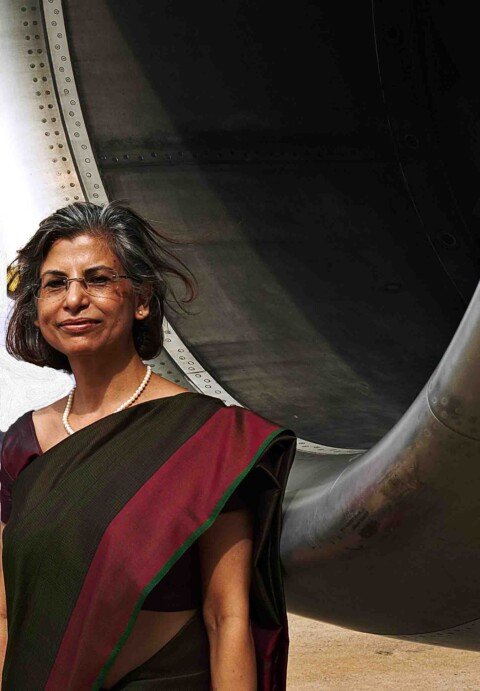One of the leading truck-based automotive logistics service providers in the country, Pallia Trans Logistics has concrete plans to nurture and acquire new clients and business opportunities to drive growth and profitability, while signifying strong partnerships that motivate them to add value to their logistics operations. The Chairman and Managing Director, Vipul Nanda, remain optimistic about future growth prospects, bearing in mind that his company has already covered a considerable ground in terms of cargo handling, pan-India presence, wide range of clients, while being responsive to emerging automotive logistics trends. The company is on a constant look out for new and innovative solutions to take care of the persistent and emerging market challenges—in what other means can they offer the best possible logistics solutions to clients—there goes the focus… may it be in design of trailers to accommodate new products or maintaining standard transit times with global positioning systems fitted on all its trucks to facilitate just-in-time deliveries. Looking ahead, Nanda seems to clearly spot real positive growth, considering that the current economic revival is likely to help sustain the sales momentum in 2021, thereby helping the industry and entire value chain partners to bounce back.
How should companies use technology to leverage emerging patterns during disruption?
This pandemic has really taught us many things. Most importantly, to maintain business operations while working from home, communicating with clients through video conferencing, etc. A lot of effort has been put in to harness the benefits of technology to the maximum and motivating the staff to do same. The right technology tools don’t just facilitate good communication and collaboration but also help remote workers connect on a personal level with colleagues, helping them feel they are a part of the office culture, just as they would be if they were physically on-site.
With COVID-19, organisations must maintain business operations while working from home— enabling a successful and productive work from home experience requires the implementation of numerous considerations, ensuring that employees continue to understand how their work contributes to the goals of the organisation as a whole, and that they continue to connect to their teams in a meaningful way. Equipping teams with the appropriate technology required for time-critical works also guarantee a productive experience while, having the power to control assets, infrastructure, andassist staffwith the help of technology available, all from the comforts of home.
The pandemic has changed the nature of logistics systems. During this period, how did you continue to add value to a vehicle maker’s business while maintaining necessary precautions and ensuring compliance management across operations?
Car carrier transportation has always played a critical role in the sphere of outbound logistics for automobile OEMs since 1980’s. But, last half a decade has been very tough for car carriers in the country, struck in the hands of weak economy, regulatory obscurity, and reorganisation within the industry. The pandemic was just another cog in the wheel.
During this disruptive period, it was real challenging for us to sanitise our trucks and keep motivating our drivers and operations staff to perform the best and ensure damage free and continue with what we always stay committed to— on time deliveries.
Unlike many other professions, drivers and cargo movers cannot work remotely from the comfort of their homes. Carriers and logistics firms have taken steps to help protect their employees from the virus as they carry out their duties. We have been providing our drivers with required number of masks, gloves, hand sanitisers and other cleaning products, but obtaining these supplies hasn’t been that easy.
Out on the road, our drivers have been using cleaning products to wipe down any human-contact touch points such as the interior and trailer doors.
Won’t railway logistics counteract and cannibalise truck-based car carrier operations of any car carrying company, as it already does in the industry? Could you elaborate on the intricacies?
I think auto transport by rail is here to stay. The railway network in India have emerged as a viable, reliable and cost-effective way to transport vehicles in the country in recent months, raking in revenue while offering a secure way for automakers to ensure products from factories reach their intended destinations without obstacles. With lockdowns in place in past months and a limited supply of trucks and truck drivers, special trains became the saviour to ensure transportation needs weren’t impacted to the extent these would have been otherwise.
While the bulk of transportation needs thus far were fulfiled by truck trailers running across the length and breadth of the country, trains are increasingly being preferred now. Of course, it has affected our business, but our cooperation and support to fulfil the first- and last-mile for automakers will continue— before vehicles are loaded in a train or after they are unloaded from a train.
Going forward, I would request the government and the OEMs to offer both rail operators and car carriers a level playing field.
Modern specialised trucks help deliver cost benefits both to OEMs and to the logistics provider in terms of increased load factor on the trailer with less turnaround time? Where does your current trailer fleet stand in terms of this?
We have always tried to improve our fleet quality, whether in terms of: Traceability— By providing best of technology, Chassis Design— By smartly engineering to provide the best load factors and still be legally compliant, and Transportation Safety—By installingbest quality interior and exterior hardware for improved safety of cars during transit.
New dimension and safety requirements for car carriers have already come into force few years back, with logistics providers making their fleets all the more compliant and secure? How do you see the domestic car carrier companies evolving alongside this?
On behalf of the entire car carrier Industry, I can proudly say that we are probably the most compliant transport sector in the industry. Across solutions that we offer, we follow international best practices and technological know-how for superior delivery of services.
I think the level of standarisation in the area of business processes has increased because projections are changing daily as new trends and models emerge every day, and we need to adapt to the changes to be right there.
I believe we can all agree that this level of standardisation is what we need to grow and scale forward.
I see that with time businesses and consumers are settling into the new normal, but the trucking industry, in general, will feel reverberations from the pandemic for years to come.
What is the overall growth target you are expecting for FY 2020-21, considering that EXIM business has started picking up?
India’s automotive industry recovered well after the lockdown. Thankfully, there is a good demand for our services at the moment. In fact, I see it growing by at least 10 per cent in the next financial year.
A positive monsoon, strong rural demand and the availability of finance are all indicators of a good economic recovery and buoyant demand, going forward.
Having said that, overall there would be challenges given the uncertainty of the pandemic and the implication of that on the supply chain. These supply issues will continue for some time to come and will continue to create short-term challenges.







